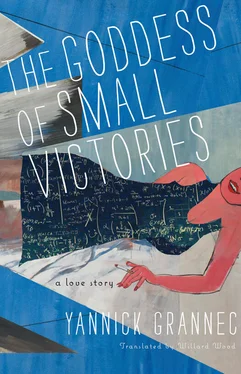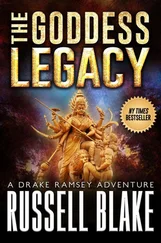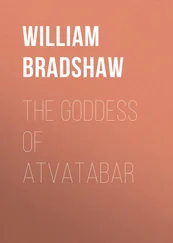“Our life is now here. We will apply for American citizenship.”
“Even if you are offered a good position in Vienna?”
“The question won’t arise.”
“Adele, what do you think?”
“I’ll go where he goes.”
“You’re the wisest of us all.”
I gave Albert his briefcase back. He hadn’t remembered that I was carrying it for him.
“Tell that to the bureaucrats in charge of emigration! Gentlemen, I’ll leave you here. I have some errands in town, and I have to buy a bottle of milk of magnesia. I’ll come back to visit with Maja this afternoon.”
They had stopped listening to me. The brown head and the white were bent over a stratospheric conversation in which I had no place. I’d imposed on them too long by my presence already. For my man, this friendship was precious, a lifesaver. It was not for me to meddle in it any further. I left them and went my way, having plenty to keep me busy. I had a trip to prepare.
At the appointed hour on the appointed day, in an astrakhan toque with her cheeks rouged, Adele lay in wait for her accomplice. She asked Anna to help her slip on a peacock-blue coat that would make them detectable a mile off. The young woman didn’t have the heart to refuse. It must have belonged to an earlier life. Mrs. Gödel counterfeited a sleeping body in her bed by leaving her turban sticking out of the covers — less on the theory that it would actually work than out of nostalgia for her mad youth. Gladys stalked up and down the hallway with a conspiratorial air. Adele scolded her, and she adopted an attitude of normality, which was even less convincing.
Jack met them as promised by the ivy-covered gate and installed the elderly woman in the car while Anna hid the wheelchair behind a bush. The fifteen miles to the movie house seemed interminable. Adele smiled incessantly at the young woman behind the wheel, indifferent to her anxiety. Anna, unused to seeing Adele so animated, imagined all the worst possible consequences of her risky plan. Her back ached and her temples pounded. All this to spend three hours with Julie Andrews. Anna had never liked the big ninny. Mary Poppins still gave her nightmares.
The County Theater, a recently renovated neighborhood movie house, had kept its illuminated marquee with the big black letters in a crooked line. If it hadn’t been for the fast-food joint with its aggressive neon display next door, Anna might have thought she was back in the 1950s. When Adele saw the film’s title, which Anna had wanted to surprise her with, she didn’t hide her disappointment. She had seen The Sound of Music when it came out in 1965. “The Americans sweetened our history just the way they do their coleslaw. It disgusted me.”
When she had settled Adele in her narrow seat, Anna started to breathe normally again. Only then did her mind, fixated on operational details, finally grapple with the one fundamental problem that had slipped her notice: this musical comedy was set against the backdrop of the Anschluss. Mortified, she attacked the vast bucket of popcorn Mrs. Gödel had insisted on buying as they entered.
“You’re not too tired?”
Adele shoved the container onto her lap. “I hate people who talk at the movies!”
Anna suppressed her irritation by looking around the audience. The last person she wanted to see was a staff member from Pine Run out on a spree. She could relax. The seats were almost empty: a young couple looking for a dark corner and a row of giggling teenyboppers.
She sat silently through the endless title sequence — an aerial view of the Tyrolean peaks, with lots of greenery and church steeples, leading to the first deafening trills of Julie Andrews in an apron, her hair in a Joan of Arc cut. Adele fingered the notes happily on the armrest. Anna wondered how long she could stand it. She had never watched this clunker through to the end, always falling asleep before the intermission. She turned around: the two lovebirds were climbing over each other. The schoolgirls whispered animatedly back and forth, having dismissed the nuns in their Austrian wimples. Anna dove back into the popcorn to dull her boredom. She knew the story: Fräulein Maria, a flighty novice at the convent, takes a post with Captain von Trapp as the governess for his seven boisterous brats. Anna smiled, feeling a hand on her own. Adele would likely have made a good mother, she should have had a string of little mathematicians of her own. As for herself, Anna was planning not to have any children, unless things took a very different turn. And especially not a daughter. What could she teach her? She hadn’t known her maternal grandmother, but the myth was all she needed: an upper-middle-class woman from Stuttgart who kept to her bed until noon, from where she terrorized her whole household. Anna imagined her ancestral line as a set of nesting matryoshka dolls: from generation to generation, the women in her family handed down their neuroses. In the Paleolithic, a hirsute Rachel was already reproaching her scruffy husband for the meagerness of his hunting.
Captain von Trapp, played by Christopher Plummer, was surprisingly seductive, despite his thick layer of pancake makeup. When it came to matinee idols, she preferred George Sanders with his cocksure expression. A charming little dance on the screen suddenly reminded her of her dance lessons. She straightened her back reflexively. She hadn’t been built to wear a tutu. Madame Françoise had admitted there was no point in torturing a student as stiff as Anna, but Rachel had insisted. She had made her daughter spend long years practicing before finally allowing her to take swimming lessons instead. In the water, no one sticks a dictionary on your head.
Striding through the gleaming streets of Salzburg, the tireless Fräulein Maria teaches the children music: “Do, re, mi, fa, sol, la, ti, do.” Anna had to admit that, despite the insipid words, the tune was engaging. To pass the time, she started to pay attention to the framing of the shots and was surprised to find a certain graphic beauty in them. Had she suddenly gone soft? Mrs. Gödel was humming along unabashedly. If the older woman was happy with the choice of movie, she would never admit it. Anna endured more than an hour of Technicolor cheeriness without a murmur, until the captain started to croon “Edelweiss, edelweiss” in such fatuous tones that she snorted. Even Adele could no longer stand it. “They didn’t skimp on the whipped cream! And those ghastly hairdos! We didn’t dress like that back then.”
The governess and Herr von Trapp were waltzing across the screen. Too much gelatin, too much edelweiss. Anna fell asleep.
She woke up with a start. The von Trapp family was crossing the mountains toward Switzerland on foot. Once again, Anna had missed the Anschluss. Adele was watching her, a smile on her face. The resurgence of the ugly past under a layer of schmaltz seemed not to have disturbed her in the least. “What is more pleasant than to sleep in a movie theater?” Anna made a superhuman effort to return to reality. The second part of the ordeal was about to begin: getting Adele home.
Night fell as they were exiting the theater. Anna looked at her racing watch. She hoped that Jack would keep his nerve and not sound the alarm if they were late. Mrs. Gödel had insisted on savoring the film down to the last line of the credits. The teenagers horsed around on the way out, covering their embarrassment at having been moved by this old warhorse. The couple were sharing a cigarette. Adele bummed one off them while her minder looked on in panic. Drawing deeply on the cigarette, she said, “I count on you to say nothing to my parents.”
Anna resisted the temptation to smoke, although the cigarette after a movie was one of her favorites. Mrs. Gödel looked dreamily at the poster for The Shining . The young woman stiffened — she was determined not to go twice on an expedition like this.
Читать дальше












